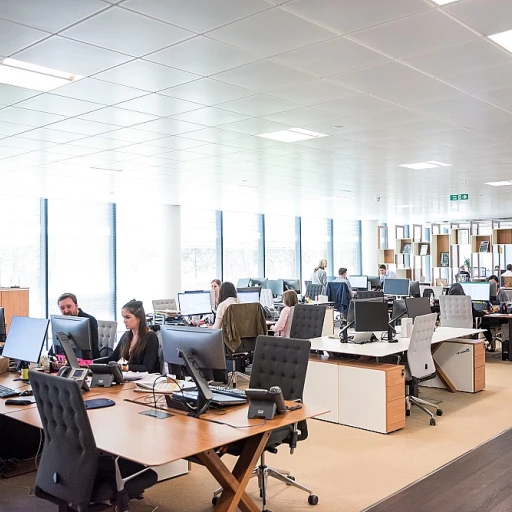
The Early Start: Morning Briefings and Preparations
Starting the Day: Morning Briefings and Essential Preparations
For police officers, the day often begins before the sun rises. The early start is a crucial part of their daily routine, setting the tone for the hours ahead. Officers gather at their respective police departments for morning briefings, a vital component of their shift schedule. These briefings are more than just a roll call; they are a comprehensive overview of the day’s objectives, updates on ongoing cases, and any immediate concerns that need addressing.
During this time, officers receive updates on incidents that occurred during the night shift, ensuring a seamless transition between shifts. This is also when they review their assignments, which can vary significantly depending on the department's needs and the officer's role. The briefing is a time for officers to align with their teams, discuss strategies, and prepare mentally for the day ahead.
Preparation extends beyond the briefing room. Officers must ensure their equipment is in working order, from their radios to their vehicles. This preparation is essential, as it directly impacts their ability to respond effectively to incidents throughout their shift. The police academy instills the importance of readiness, a lesson that officers carry with them throughout their careers.
As officers step out into the field, they are equipped not just with physical tools, but with the knowledge and strategies discussed during the briefing. This preparation is crucial for navigating the streets and fulfilling their civil service duties effectively. The morning routine is a testament to the discipline and dedication required in law enforcement, setting the stage for a day filled with diverse challenges and responsibilities.
For more insights on how officers manage their daily responsibilities and maintain their professional reputation, you can explore this resource.
Patrol Duties: Navigating the Streets
Street Patrol: The Heartbeat of Law Enforcement
Patrol duties form the essence of a police officer's day and stand as a testament to the dedication required in law enforcement. Out on the streets, officers face various scenarios, from routine traffic stops to more complex incidents requiring rapid decision-making. This aspect of their role requires both vigilance and quick thinking. A typical shift for a police officer generally aligns with one of the standard patrol schedules: day shift, night shift, or a swing shift that may require evening hours. The rotational nature of these shifts demands flexibility and adaptability, as officers often find themselves altering their sleep patterns and personal lives to meet the demands of their schedule. Unlike a typical office job, where hours are set and predictable, an officer's work within a police department can change week by week or even day by day. The necessity for officers to split their time between administrative obligations and patrol duties underlines the critical balance they must maintain. Prioritizing public safety is key to all patrol tasks. Officers spend a significant portion of their days monitoring community areas, ensuring traffic safety, and responding to emergency calls. These activities not only serve to protect citizens but also provide insight into the community's needs. Training received at the police academy plays a crucial role in preparing officers for the unpredictability of these patrols. Over time, an officer's ability to handle a wide range of situations confidently is bolstered by years of experience on the streets and continuous education throughout their careers, highlighting the importance of ongoing training and development. Long shifts, in tandem with the responsibility of safeguarding communities, weigh heavily on an officer's mental and physical well-being. Thus, police departments have begun recognizing the importance of addressing the mental health challenges officers face, offering support systems and resources designed to help manage the stresses associated with the job. To delve deeper into strategies that support law enforcement in these demanding roles, consider crafting an effective advocacy newsletter for more insights.Administrative Tasks: Beyond the Badge
Behind the Desk: Important Administrative Duties
Administrative tasks are an essential part of a police officer's daily routine, often going unnoticed by the general public. These tasks ensure the efficiency and effectiveness of police service, going beyond what people commonly perceive as police duties. While out on patrol, officers must be prepared for a variety of challenges, but back at the department, a different set of skills comes into play. Many officers spend considerable time handling paperwork, coordinating with different departments, and following up on cases. Documentation is crucial for maintaining accurate records, ensuring each incident, arrest, or action is appropriately logged. This meticulous attention to detail contributes to the integrity of police work. A police officer's schedule can be demanding, often requiring shifts that extend into the night or even span into long hour shifts. To meet these demanding schedules, officer schedules are meticulously planned by the department to optimize resources and ensure coverage during peak times. Shift changes are routine, and officers must adapt to different hours of work throughout the year. Aside from routine documentation, officers are involved in planning and attending meetings or briefings. These gatherings are crucial for discussing ongoing cases, sharing critical information, and developing strategies to tackle community challenges. Further administrative responsibilities may include assisting in the training and development of fellow officers or new recruits, providing the foundational knowledge they need as they navigate the complexities of law enforcement. For officers hoping to advance in their careers, understanding the intricacies of police shift scheduling and administrative responsibilities is vital. These experiences equip officers with the skills needed for lateral transfers or increased responsibilities within the department. Officers often spend years cultivating these skills, demonstrating dedication to public service beyond the call of duty. For more insights into police administrative duties and how they align with broader policing strategies, you might find enhancing your Google Business Profile useful. Understanding these aspects is key to an officer's success and their impact on the community.Training and Development: Continuous Learning
Ongoing Commitment to Skills and Knowledge
Police officers are constantly challenged with a dynamic work environment that demands the utmost from them. As part of their professional duties, they often engage in regular training programs that help maintain and enhance their skills. This commitment to continuous education is paramount, ensuring officers are well-prepared to meet the challenges of their shifts effectively. During the year, police departments often provide various forms of training. This may include refresher courses on the use of firearms, first aid, or de-escalation techniques—each contributing to the safety of both the officers and the community they serve. Police academies also play a crucial role in furthering the knowledge base of officers, with training sessions often scheduled in line with the police shift patterns, allowing officers to attend without disrupting their work schedule. In addition to departmental training, officers may also participate in specialized workshops and seminars. These are occasionally facilitated by experts in law enforcement, aiming to introduce new methods and technologies that can be employed in daily duties. By participating in these events, officers gain insights into the latest trends and best practices within the field. Moreover, police departments often encourage lateral transfers, offering opportunities for officers to gain experience in different divisions. This not only diversifies an officer's expertise but also broadens their understanding of the entire department's operations. An officer's career is not just about patrolling and enforcing the law; it’s about being prepared for whatever the shift may throw their way. The time invested in training is a testament to their dedication to the civil service and their own professional growth. With years spent within the force, officers routinely adapt their shift schedule to ensure there’s room for both duty and ongoing learning.Shift Changes: Adapting to Different Hours
Adjusting to New Rhythms: The Cycle of Shifts
The life of police officers is frequently dictated by the rotation of shifts, which are an intrinsic part of law enforcement work. This requires flexibility and adaptation, both mentally and physically, to tackle the demands of various shift schedules. Officers often transition between day and night shifts to ensure 24-hour coverage, making it essential for them to adjust their internal body clocks frequently.For many, a common shift might consist of a "10 hours on, 14 hours off" type of scheduling, which allows a degree of rest in between. However, the reality is that this can greatly vary depending on the size and needs of the police department. Some police departments operate on "12-hour shifts" or even "8-hour shift schedules" to suit the requirements of the area they serve. Such variability necessitates that officers remain adaptable, continually realigning their personal lives and resting patterns around professional responsibilities.
Strategically, departments might stagger shifts so that at any point, there is a mix of more experienced officers alongside those newer to the field who might still be learning the ropes through on-the-job experience and academic components picked up from the police academy. Furthermore, lateral transfers might occur within a department or between different county police bodies, requiring officers to demonstrate flexibility in adapting to evolving shift rotations.
Transitioning between shifts isn't simply about changing the hours one works. Police officers must frequently recalibrate their mental well-being as they frequently navigate changes in sleep patterns, nutrition, and personal time. Beyond these personal considerations, officers may also engage in regular briefings and training sessions intended to smooth these transitions. Departments are increasingly aware of the mental health challenges this can impose, making mental health support and sick leave more accessible to mitigate on-the-job stress.
The challenge is real, but in managing these expectations, both the police officers and the departments strive to maintain an unbroken civil service that meets public safety needs continually, day and night, 365 days a year.
Mental Health and Well-being: Coping with Stress
Managing Mental Health Challenges in Law Enforcement
The life of a police officer is often a demanding one, with varying shift schedules and unpredictable hours. Whether it's a day shift or a night shift, the responsibilities that come with patrolling the streets and handling administrative tasks can weigh heavily on officers. It's critical for police departments to ensure their workforce is equipped to handle stress and maintain mental health and well-being throughout the year.
Many police departments have recognized the need for mental health support, introducing programs that provide officers with the resources to manage work-related stress. Access to counseling services, stress management workshops, and peer support groups has become an integral part of many departments' offerings. This approach helps officers cope with the unique challenges they face daily, while also promoting a culture of openness and support.
Police officers often work long hours, sometimes extending beyond the typical 8-hour shifts, making it important for them to manage their time efficiently. The shift schedule can impact both physical and mental health, and departments are encouraged to offer flexible schedules or lateral transfers when possible to accommodate personal needs. Sick leave policies can also play a role in ensuring officers have the necessary time to recover from both physical and psychological strains.
Additionally, continuous training and development play a role in officer well-being. Regular training sessions not only enhance their law enforcement skills but also provide an avenue for officers to decompress and engage in activities outside routine patrol duties. Police academies have started incorporating mental health training to prepare new recruits for the psychological demands of the job.
Ultimately, maintaining an officer's mental health is a strategic aspect of effective workforce management, ensuring that they can continue to provide the best service to their communities while safeguarding their own health and well-being.













